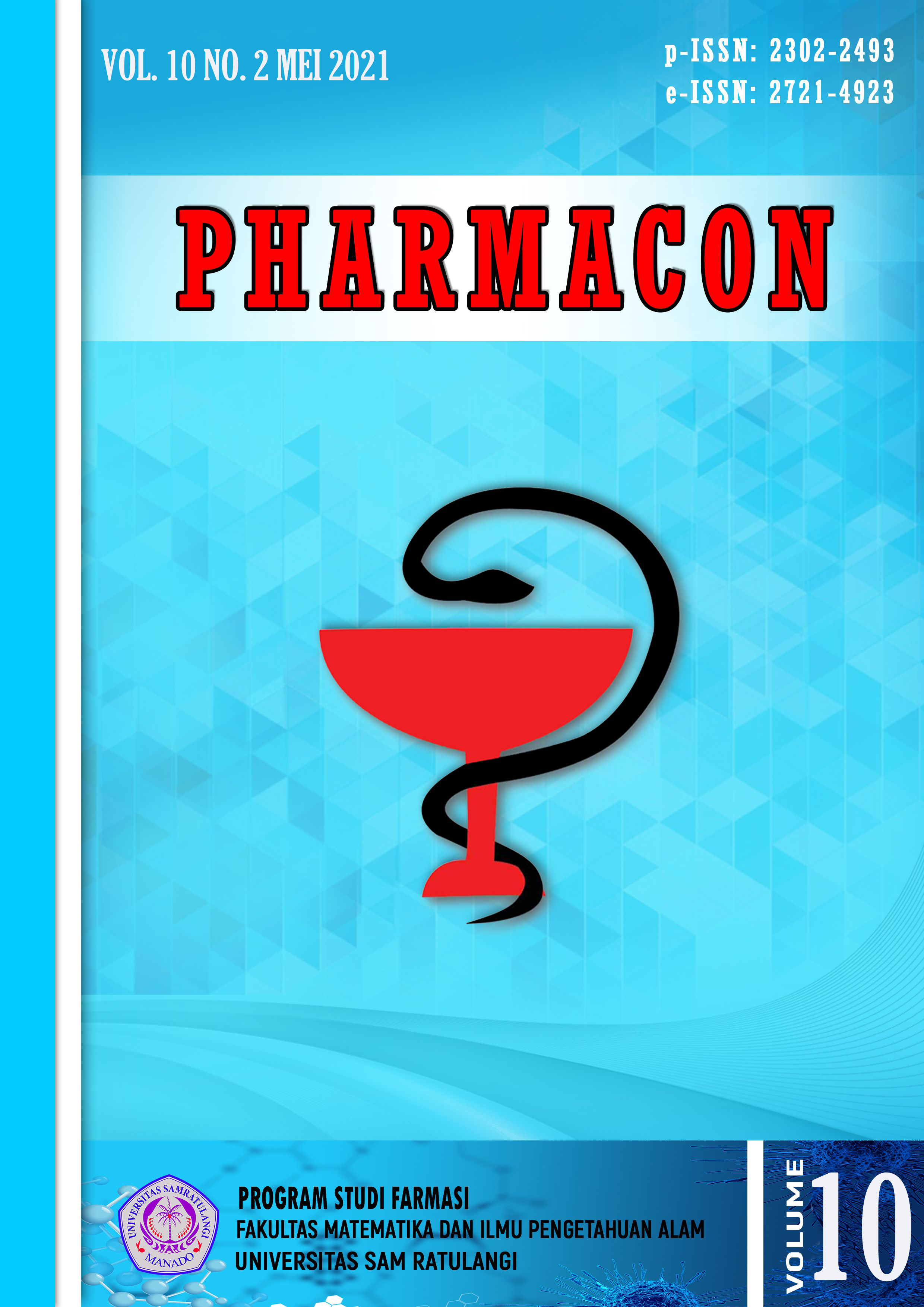AKTIVITAS ANTIOKSIDAN EKSTRAK TERIPANG (H.atra) DENGAN METODE DPPH (1,1-diphenyl-2-picrylhydrazyl)
DOI:
https://doi.org/10.35799/pha.10.2021.34036Abstract
ABSTRACT
Utilization of marine life is not just consumptive but can be used as raw material for medicines, one of which is sea cucumber. Sea cucumbers (H.atra) are marine invertebrates belonging to the Echinoderms phylum which have been studied containing antioxidants. Therefore, a study was conducted to determine the antioxidant activity of sea cucumber (H.atra) extract taken from the waters of Manado Bay using the DPPH (1,1-diphenyl-2-picrylhydrazyl) method. Sea cucumber samples were extracted using the maceration method. The ethanol extract of sea cucumber showed high antioxidant activity at a concentration of 8 μg / ml with 77.83% inhibition percentage.
Â
Keywords: H.atra, Antioxidant, DPPH (1,1-diphenyl-2-picrylhydrazyl).
Â
ABSTRAK
Pemanfaatan biota laut bukan hanya sekedar konsumtif saja tapi dapat berpotensi sebagai bahan baku obat-obatan salah satunya teripang. Teripang (H.atra) adalah hewan invertebrata laut yang termasuk ke dalam filum Echinodermata  yang pernah diteliti mengandung antioksidan. Oleh karena itu, dilakukan penelitian untuk mengatehui aktivitas antioksidan dari ekstrak teripang (H.atra) yang diambil dari perairan Teluk Manado dengan menggunakan metode DPPH (1,1-diphenyl-2-picrylhydrazyl). Sampel teripang diekstraksi menggunakan metode maserasi. Ekstrak etanol teripang menunjukkan aktivitas antioksidan yang tinggi pada konsentrasi 8 μg/ml dengan persen inhibisi 77,83%.
Â
Kata kunci: Â H.atra, Antioksidan, DPPH (1,1-diphenyl-2-picrylhydrazyl)Downloads
Published
How to Cite
Issue
Section
License
Authors who publish with this journal agree to the following terms:
- Authors retain copyright and grant the journal right of first publication with the work simultaneously licensed under a Creative Commons Attribution-NonCommercial 4.0 International License that allows others to share the work with an acknowledgement of the work's authorship and initial publication in this journal.
- Authors are permitted and encouraged to post their work online (e.g., in institutional repositories or on their website) prior to and during the submission process, as it can lead to productive exchanges, as well as earlier and greater citation of published work (See The Effect of Open Access)










